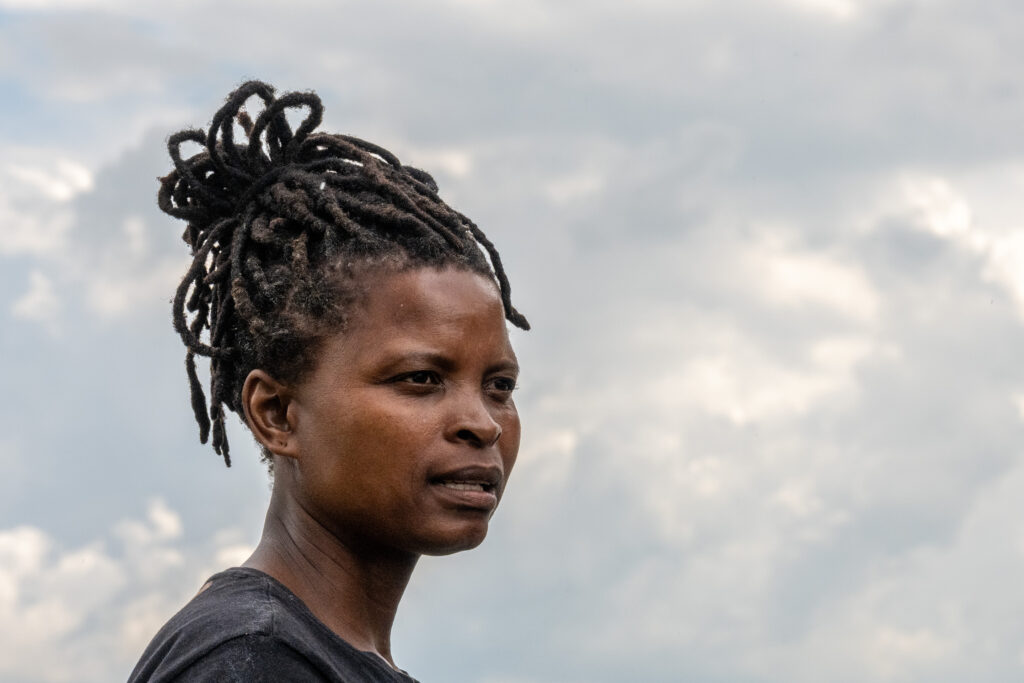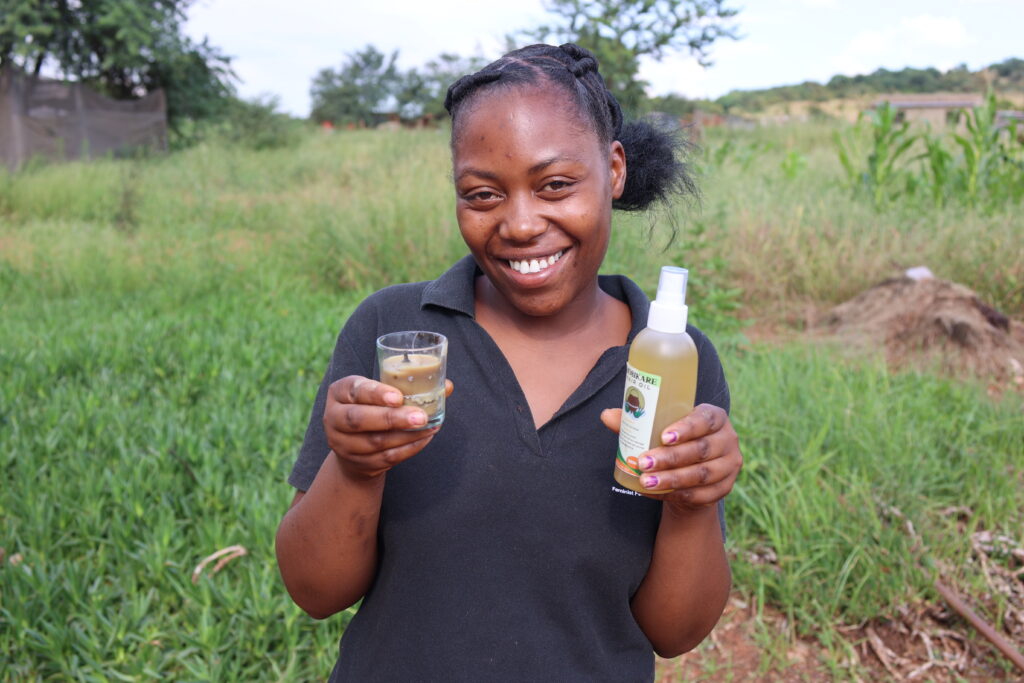
In the fight against climate change, grassroots solutions often hold the greatest potential for impact. Across Africa, women are leading innovative efforts to build resilient communities while tackling environmental challenges. One such changemaker is Mamosweu Tsoabi, a dynamic activist from South Africa whose work is redefining sustainability through locally driven solutions.
The first time I saw Mamoswzeu Tsoabi, she exuded the essence of a powerful woman. Confident and engaging, she moved effortlessly between directors of major organisations and comrades in the climate justice movement. It was at the third edition of the Global Coordination Meeting (GCM) of the African Activists for Climate Justice (AACJ), a high-level gathering aimed at shaping advocacy and programming for Africa’s climate response. She was the ideal delegate for such an occasion.
At the GCM, Mamosweu showcased an innovation that immediately caught my attention—cooking bags. Yes, you read that right: bags designed for cooking. What makes them remarkable isn’t just that they function as cooking devices despite being made from non-metal materials, but that they are crafted entirely from recycled waste collected from dump sites in South Africa. Leading this initiative, Mamosweu is transforming discarded materials into a sustainable energy solution.

Serapeng Members
After the GCM, we travelled to Gauteng Province, one of South Africa’s largest and most dynamic regions—an industrial hub where innovation and inequality coexist. Potholes line the highways to the townships, while informal settlements stand in stark contrast to towering mansions, painting a vivid picture of the divide between the haves and the have-nots. Amid these realities, Mamosweu has found a way to empower her community while protecting the environment.
Supported by Oxfam South Africa (OZA), Mamosweu’s organisation, Serapeng sa Ditlhare, raises awareness about climate change while empowering communities through alternative energy innovations and organic farming. Speaking to a delegation led by Carel De Groot, a representative from the Dutch government, she shared the motivation behind her transformative work.
“We realised the energy challenges South Africa is facing in relation to electricity supply, and I said to myself, why not produce the energy ourselves?” she said proudly.
Women Leading Climate Action
True to her word, Mamosweu is working with local women to develop sustainable and environmentally friendly energy solutions. Through Serapeng sa Ditlhare, she has built a biogas digester in her underserved community of Waterdal, enabling residents to convert organic waste into a renewable energy source.
Mamosweu’s climate activism is built on two critical pillars: sustainability and women’s empowerment. Through her skills transformation program, she trains local young women in climate-smart agriculture and the use of recycled materials to generate energy and create various products.
“From learning about farming nightcrawler worms to transforming polystyrene waste into flower jars and bricks, this centre has given me a great opportunity to acquire life skills while protecting my environment,” said Mathapelo Macheru, one of the young women working alongside Mamosweu on these projects.

Mathapelo Macheru
Women like Mamosweu offer a beacon of hope. At a time when global leaders are retreating from funding climate response initiatives, the women of Serapeng remain steadfast. Their mission is to continue their activism by demonstrating practical ways communities can drive change—regardless of donor funding. Oxfam South Africa is proud to support this initiative and showcase it as a story of transformation through Locally-Led Climate Adaptation.
“Our duty is to support community initiatives where locals lead in designing innovative solutions to their challenges. The women in this Vaal area are true champions of climate adaptation, and we aim to scale up similar interventions across South Africa, even beyond the scope of the AACJ project and the SAACJ Movement,” said Mandisa Dyantyi, Movement Building Manager at Oxfam South Africa.
The African Activists for Climate Justice (AACJ) project, led by PACJA, brings together dynamic consortium partners dedicated to youth mobilisation, women-led advocacy, resilient community building, amplifying African narratives, and locally driven adaptation initiatives. By prioritising sustainable practices and long-term solutions, the movement not only tackles immediate climate challenges, but also ensures that future generations inherit a more resilient, equitable, and thriving Africa.
Through efforts like those of Mamosweu Tsoabi, the movement is proving that community-driven solutions can drive meaningful change in the fight for climate justice.
Jephiter Tsamwi is a gender and climate justice advocate based in Harare, Zimbabwe
Edited by Pius Okore
